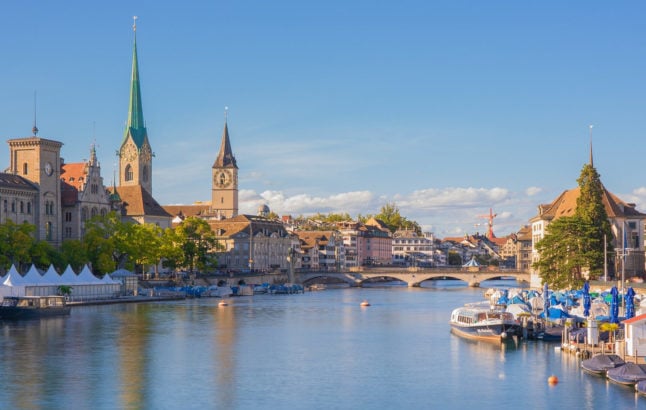Migros was founded in 1925 by Swiss businessman Gottlieb Duttweiler.
One of the founding principles of the organisation was that the health of customers was paramount – and as a result, outlets would not sell alcohol or cigarettes.
Almost 100 years later and despite significant expansion across the country, Migros outlets still uphold this core promise – although things look set to change from June 2022 (or more likely the start of 2023), as we outlined here.
However, there’s a little more to Duttweiler’s stance than a pure dedication to the health of his customers.
In reality, the supermarket’s refusal to sell alcohol has more to do with marketing and good business sense than genuine concern about his customers’ health.
Here’s what you need to know.
Why Migros doesn’t sell alcohol, according to Migros
Despite being one of Switzerland’s most prominent and successful supermarkets and arguably one of its most prominent brands, Migros’ identity is grounded in community values rather than just the pursuit of profit.
After Duttweiler created the company 100 years ago, he sold food to workers at lower prices and launched a program which promoted cultural diversity.
He also gave female members the right to vote at cooperative meetings, which was quite an advance at the time considering women could not vote federally in Switzerland until 1971 (and until 1990 in all cantons).
EXPLAINED: What happened after Swiss women got the right to vote in 1971?
Another aspect of this social pledge was a promise not to sell alcohol or tobacco in any of its stores – a pledge that it has kept until this day, although alcohol is available with the company’s subsidiaries Denner, Migrolino, Alnatura and Voi, as well as online.
But why did it really happen?
Swiss tabloid Blick this week delved into the company’s history, showing that the company’s founder had an eye on appealing to Switzerland’s puritanical consumers when putting the ban in place.
In 1928, Duttweiler took over a cider brewery on the verge of bankruptcy in Meilen, on the shores of Lake Zurich.
While Duttweiler’s initial plan was to add another production plant to help his expanding business, he noticed that the founders had a special pledge of upholding public health “against excessive consumption of cheap brandy and fruit schnapps”.
Finding himself in debt and in “urgent need of money”, as Blick writes, Duttweiler sees a market opportunity by taking the fight to the “popular drug alcohol”, which was increasingly demonised on both sides of the Atlantic.
By “making a virtue out of necessity”, Duttweiler – a man who was not averse to a good glass of wine or a cigar, as Blick writes – lay down battle lines, pitting “isolated, lone Migros against the colossi of alcohol capital and the food industry” as he actually said in Brücke magazine at the time.
The rhetoric caught on and Swiss consumers flocked to Migros, allowing it to grow into what is now the country’s major supermarket.
Will this change?
Former Migros CEO Mario Bonorand told Swiss media earlier in 2021 that the company could make an additional CHF2 billion if it decided to sell alcohol in its stores.
Migros will hold its delegate assembly in November and is set to vote on whether or not to keep the ban in place.
READ MORE: Is Swiss supermarket Migros about to start selling alcohol and cigarettes?
Migros spokeswoman Christina Maurer told 20 Minutes that several Migros stores want to start selling alcohol and tobacco.
“Many delegates have raise the issue recently” Maurer said.
In order to allow the sale of alcohol and tobacco, the delegates would need to vote to change the underlying rules drawn up by Duttweiler so long ago.
Maurer said she would consider the issue “through a democratic ballot of all members of the cooperative”. This will take place in June 2022, with each of the company’s ten regional collectives voting on the matter.
Some on social media spoke out against the change and said it represented a departure from the organisations core values for profit.
Others however point out that it is not the first time the company has made money from selling booze and smokes.
Migros subsidiaries Migrolino and Denner both sell alcohol and cigarettes, while Migros itself currently sells alcohol and tobacco via the internet under the Le Shop banner.
In fact, the Luzerner Zeitung reported in June 2021 that there are so many loopholes to Migros’ position, that it is difficult to argue the company remains consistent with the pledge of its founder.
“The retailer has now moved far away from its self-imposed alcohol ban. Migros eagerly looks for loopholes, repeatedly approaches the topic and ultimately lies to herself.”
“Because wine, beer and schnapps have long been on the shelves of the group, with the subsidiaries Denner, Migrolino, Alnatura and Voi. The branches of the discount subsidiary Denner are conveniently often right next to a Migros and are not stingy with their high-priced range.”



 Please whitelist us to continue reading.
Please whitelist us to continue reading.
Member comments